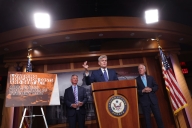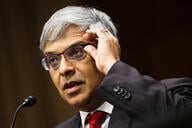You have /5 articles left.
Sign up for a free account or log in.
An associate professor of journalism at New York University said United Arab Emirate officials denied him the requisite security clearance he needed to teach at NYU's campus in Abu Dhabi this fall for reasons that he believes are related to his religion. The university acknowledged that two of its faculty were recently denied visas to teach at the Abu Dhabi campus, but disagreed with the conclusions the professor draws in his op-ed and said the campus has students and staff from a wide array of countries and faiths.
Writing in an op-ed in The New York Times, Mohamad Bazzi wrote that while Emirati officials did not give a reason for the denial of his security clearance, he believes it is due to the fact that he is a Shiite Muslim originally from Lebanon. “The U.A.E., like Saudi Arabia and other Sunni Arab states, are worried about Iran’s regional ascendance and its influence over Syria, Iraq, Lebanon and Yemen,” Bazzi wrote in the op-ed, published Tuesday. “This anxiety fuels a fear that virtually any Shiite in the region could pose a security threat — and could be linked to Iran or its allies.”
Bazzi wrote that his religion had been an issue when he taught a monthlong journalism class at NYU"s Abu Dhabi campus in 2012 and 2013. “NYU administrators had told me they were worried that I would be denied a security clearance because of my Shiite origins, and they twice held back on submitting my application,” he wrote. “They found a way around it by sending me on a tourist visa and describing me as a “consultant.’”
Bazzi wrote that while he’s been told by NYU officials that they are still seeking a reversal of the denial, he is not optimistic. He described former NYU President John Sexton's promises of academic freedom at the Abu Dhabi campus, which was funded by the Abu Dhabi government, to be "largely worthless."
“If NYU continues to accept Abu Dhabi’s largess, it needs to acknowledge the limitations that the emirate’s security and foreign policies impose on academic freedom,” Bazzi wrote. "At the very least, the university should admit that it has bought into a political system that actively discriminates against members of a religious minority because of an overwhelming fear of Iran and hatred of Shiites. This is far from the free movement of people and ideas to which N.Y.U.’s leaders claim to aspire."
Matt Nagel, an NYU spokesman, said in a statement that it doesn't know why visas for two of the university's faculty members were denied. "But let there be no mistake: As NYU has long made clear, we believe in the free movement of people and ideas, that teaching is strengthened by the resulting intellectual diversity, and we are always disappointed when we encounter obstacles that interfere with that vision. We continue to press for the free flow of scholars across our global network," Nagel said.
"However, we strongly disagree with Professor Bazzi's conclusions," Nagel added."Like the UAE, the NYUAD community is extraordinarily diverse: It includes faculty, students, and staff are from well over 100 countries, representing a broad collection of faiths – including those identifying as Sh’ia."
This is not the first time NYU has faced controversy over one of its professors being denied permission to travel to the U.A.E. In 2015, Andrew Ross, a professor of social and cultural analysis at NYU, was blocked by U.A.E. authorities from boarding an Abu Dhabi-bound plane at New York’s Kennedy International Airport due to stated “security reasons.” Ross was trying to travel to the Emirates to continue his research on migrant labor issues there.




